In this meeting note, Thamban C, Anithakumari P and Regi Jacob Thomas reflect on their participation in the National Mentoring Workshop on Strengthening Farmer Producer Organisations (FPOs) organised by ICAR-CPCRI at Kayangulam on 14th August 2022.
CONTEXT
During the last few decades, a wide range of FPOs have emerged and their number is on the rise. A central sector scheme for formation and promotion of 10,000 FPOs is being currently implemented by the Ministry of Agriculture & Farmers Welfare under which financial assistance and other incentives are provided to FPOs. Even though a large number of FPOs – of diverse types – has been formed and is functioning there are reports about various challenges they face in sustaining their activities and to achieve their objectives (Thamban et al. 2020).
Facilitating the formation of new FPOs is extremely relevant if the interests of the millions of small and marginal farmers in our country are to be protected (Box 1). But it is also equally important to analyse the performance of existing FPOs so that the nature and extent of problems they experience can be figured out, and viable strategies and interventions can be formulated and implemented to sustain their activities.
|
Box 1: Why FPOs? By organizing small and marginal farmers into farmer groups and Farmer Producer Organisations (FPOs), farmers have better capacity for and access to technical knowhow on crop planning and management, inputs, credit, post-harvest management, value addition, marketing infrastructure and better market linkages. Primary producer organisations or collectives are being viewed as the only institutions that can protect small farmers from the ill-effects of globalization or enable them to participate successfully in modern competitive markets (Trebbin and Hassler 2012). |
ICAR-Central Plantation Crops Research Institute (CPCRI), one of the national institutes under ICAR having the mandate for research on coconut, arecanut and cocoa, has been actively promoting farmer collectives as part of projects implementation pertaining to transfer of technologies, especially in the coconut sector. Hence, organising the National Mentoring Workshop for Strengthening Farmer Producer Organisations, on 14 August 2022 at the ICAR-Central Plantation Crops Research Institute (CPCRI) Regional Station, Kayangulam, as part of the Platinum Jubilee celebration of the Regional Station was an apt decision. The workshop was organised in collaboration with the National Bank for Agriculture and Rural Development (NABARD). About 75 FPOs from Kerala and Tamil Nadu participated in the workshop.
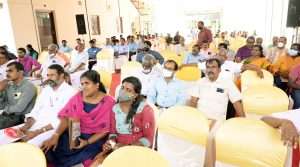
TECHNICAL SESSIONS
Session I
The first session had presentations related to support extended for formation and sustenance of FPOs by different agencies, and the status of FPOs in selected crop sectors. They included the following:
- Experiences of NABARD in promoting FPOs s-Avenues for leveraging marketing, credit and institutional support;
- Policies and development ecosystem of FPOs – An analysis and way forward – Kerala scenario;
- APEDA’s role in marketing, export promotion & opportunities for FPO linkages;
- Experiences and perspectives of FPO – A case study by the Coconut Development Board;
- State sector schemes for FPOs and criteria for funding;
- FPOs in the coconut sector – Lessons learnt and way forward.
It was evident from the presentations that the financial incentives and technological support provided to FPOs in the initial phase to facilitate formation and initiate activities were substantial and resulted in the proliferation of FPOs with diverse sets of objectives. However, the involvement of the agencies for monitoring their performance and to extend a helping hand to sustain the activities in an effective manner in subsequent years as and when they encounter constraints/challenges was not very satisfactory.
Session II
In the next session panellists representing ICAR institutes, KVK and NABARD, interacted with FPO representatives and clarified various aspects especially the technology support available and opportunities for functional linkages. There was good response from the FPO representatives as they expressed their interest in availing of the opportunities to attend various capacity development programmes on technologies so as to initiate viable enterprises.
However, it was felt that a mechanism needs to be planned to link the scientists of various institutes with the enterprises under FPOs, enabling them to assess the performance of technologies transferred, to suggest measures to effectively utilise these technologies, and also to modify these technologies if the enterprises experience technological constraints.
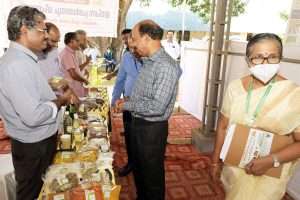
Session III
The third session was set apart for experience sharing by four selected FPOs. The genesis of an FPO, the institutional support received, mobilisation of farmers and resources, services/products by FPOs, and their marketing practices, finance management, constraints experienced, etc., were briefly narrated by the FPO representatives. Out of the 75 FPOs from Kerala and Tamil Nadu that participated in the workshop, the majority were in their initial years of activities. But some of the FPOs were as old as 13 years. A cursory look at the profile of FPOs revealed that activities pursued by the FPOs were also very diverse in terms of number of shareholders, working capital mobilised, services offered, products manufactured and marketed, institutions linked, and of course problems encountered. Newly-formed FPOs were keen to know about the incentives and support measures available from different agencies as well as the potential technologies available for value addition. But the older FPOs were all keen to describe difficulties faced in sustaining their activities.
A representative of one of the FPOs in the coconut sector that was established 12 years ago, who shared her experience elaborated on the major difficulty with regard to lack of sufficient working capital for managing the production of coconut oil, the major product of the FPO. Another FPO representative spoke of the difficulty experienced in convincing the growers about the need to form an FPO. Innovative marketing practices including use of online platforms, such as Amazon, for marketing was described by one of the FPO representatives. Constraints mentioned by the representatives of FPOs in the coconut sector and suggestions for revitalising the FPOs were similar to the results from a study conducted by CPCRI among selected Coconut FPOs in Kerala, as well as the output of a Scientist-FPOs interface programme on ‘FPOs in coconut sector – Status and challenges’ organised by CPCRI during 2021 at Kozhikode.
Local Self Governments (LSGs) can play an important role in supporting farmer collectives by involving them in the implementation of a decentralised planning initiative, opined a representative of an FPO in the rice sector. Interventions on production and supply of planting materials, customised fertilizers, inputs for organic agriculture, interventions to provide support to growers by making available skilled labour and farm equipment and machinery, etc., can be included in the decentralised planning and linked to the FPOs for implementation. However, many of the FPOs felt that most of the LSGs do not realise the potential of linking decentralised planning in agriculture sector and FPOs. They recommended that specific norms be fixed and necessary guidelines issued to LSGs for supporting FPOs through decentralised planning.
According to one of the participants, it is quite encouraging that government is providing incentives for the formation of new FPOs. However, equal emphasis should also be placed on extending continuous support for the FPOs in subsequent years when they start experiencing difficulties in sustaining their activities. This is not happening.
Important suggestions to revitalise the FPOs in coconut sector included the following:
- Facilitate formation of a consortium of FPOs in coconut sector and common branding for the coconut value added products produced and marketed by coconut FPOs;
- A corpus fund may be raised with government support for generating sufficient working capital for coconut FPOs;
- Procurement of coconut from coconut growers may be facilitated through a network of CPSs/CPFs, and primary processing of nuts facilitated by the formation of a nodal agency for the collection of copra, and a central facility for safe storage/warehousing;
- Specific norms may be fixed and necessary guidelines issued to LSGs for supporting FPOs through decentralized planning.
As part of the workshop two agri-based start-ups – one on the ‘Use of drones in agriculture’ and the other on ‘QR code imprinted seedling tagging and sensor for red palm weevil detection’ introduced their products and services. The FPOs were made aware of the potential for taking up the services of such start-ups in their FPO interventions so as to benefit farmers.
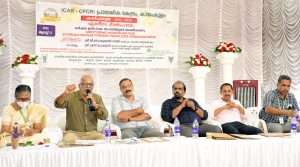
OUR IMPRESSIONS
Due to paucity of time, only a few selected representatives could share their experiences and offer suggestions, and hence it was suggested by many of the participants to have follow-up programmes with more specific sets of objectives centred around revitalising FPOs. It implies that while organising workshops or meetings on themes related to strengthening FPOs it is better to include homogenous group of FPOs in terms of crop/enterprise sector, age of the FPO, products and services offered, etc.
It is also necessary to conduct studies periodically to analyse the status of FPOs in different sectors including crop-oriented FPOs, sustainability of their activities, and development of a framework for action involving FPOs and other stakeholders to sustain activities so that farmers are able to derive the expected benefits from collectivisation.
REFERENCES
Government of India. 2019. Agricultural census 2015-16. Phase-1. All India report on number and area of holdings. Agriculture Census Division, Ministry of Agriculture and Farmers Welfare, Government of India.
Thamban C, Jayasekhar S, Chandran KP and Rajesh M.K. 2020. Sustainability of Farmer Producer Organisations – The case of producer organisations involved in the production and marketing of ‘neera’ in the coconut sector in Kerala, India. Journal of Plantation Crops 48(2):150-159.
Trebbin A and Hassler M. 2012. Farmers’ producer companies in India: a new concept for collective action?. Environment and Planning 44(2):411- 427.
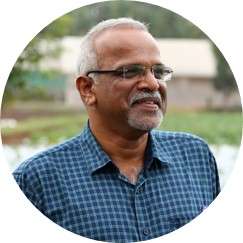 Dr. Thamban C, Principal Scientist (Agricultural Extension), ICAR-Central Plantation Crops Research Institute (CPCRI), Kasaragode, Kerala, India. (Email: c.thamban@gmail.com)
Dr. Thamban C, Principal Scientist (Agricultural Extension), ICAR-Central Plantation Crops Research Institute (CPCRI), Kasaragode, Kerala, India. (Email: c.thamban@gmail.com)
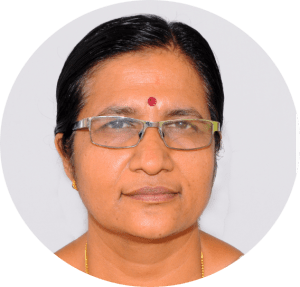 Dr Anithakumari P, Principal Scientist (Agricultural Extension), ICAR-Central Plantation Crops Research Institute (CPCRI), Regional Station, Kayangulam, Kerala, India. (Email: anithacpcri@gmail.com)
Dr Anithakumari P, Principal Scientist (Agricultural Extension), ICAR-Central Plantation Crops Research Institute (CPCRI), Regional Station, Kayangulam, Kerala, India. (Email: anithacpcri@gmail.com)
 Dr. Regi Jacob Thomas, Principal Scientist (Horticulture), ICAR-Central Plantation Crops Research Institute (CPCRI), Regional Station, Kayangulam, Kerala, India. (Email: regijacob.thomas@icar.gov.in)
Dr. Regi Jacob Thomas, Principal Scientist (Horticulture), ICAR-Central Plantation Crops Research Institute (CPCRI), Regional Station, Kayangulam, Kerala, India. (Email: regijacob.thomas@icar.gov.in)

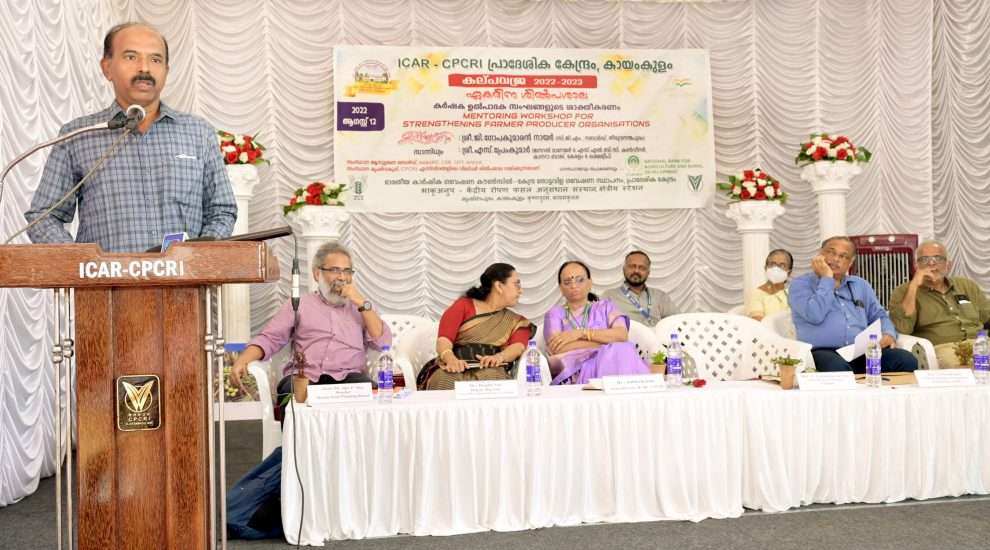

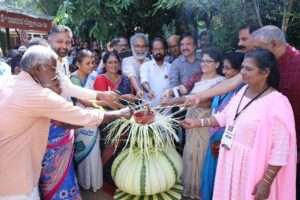

Add Comment